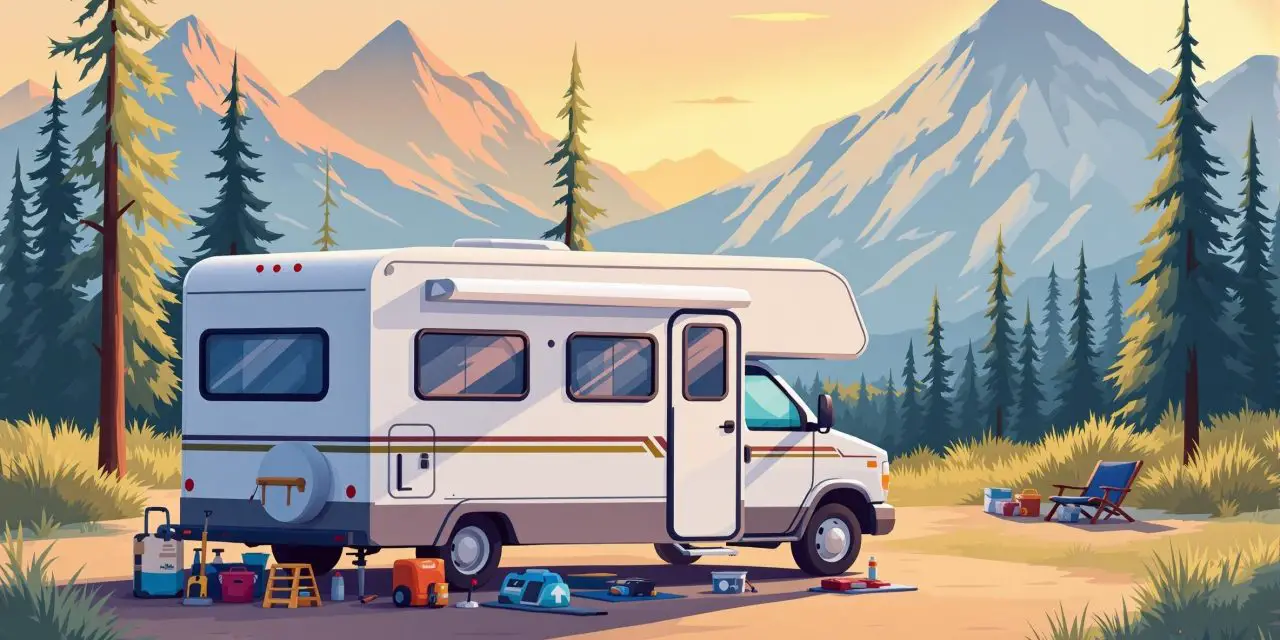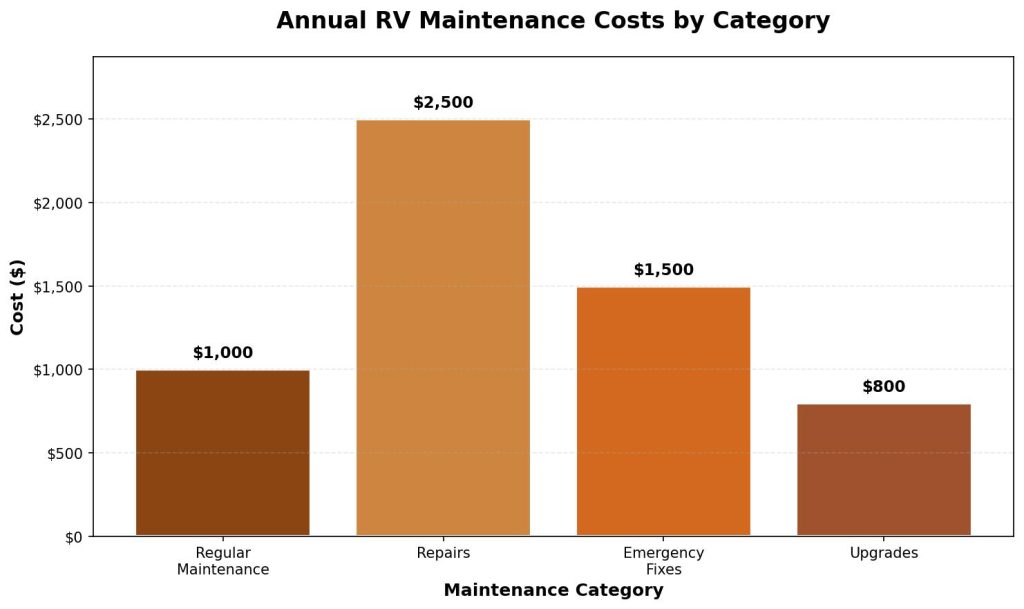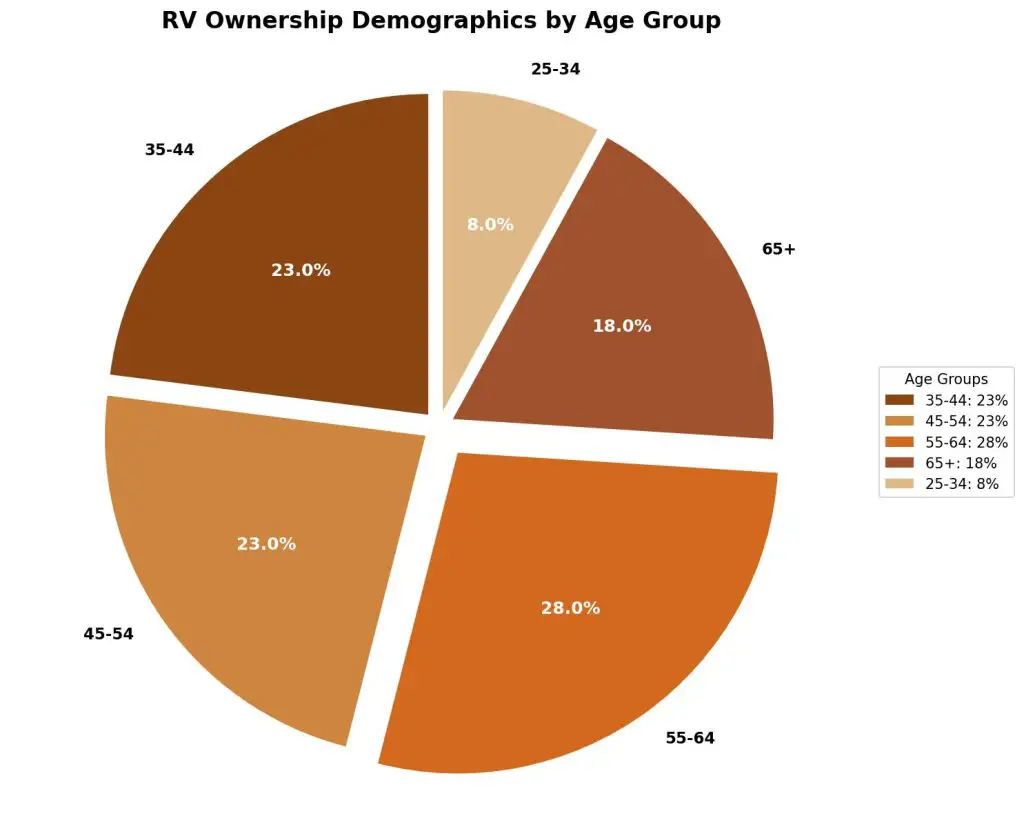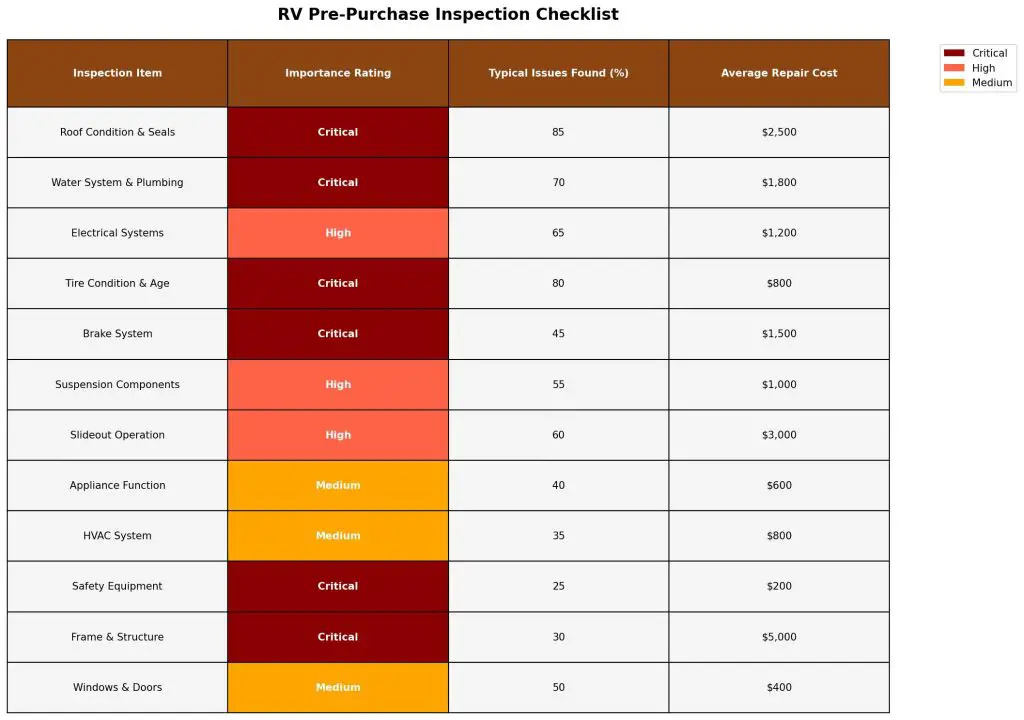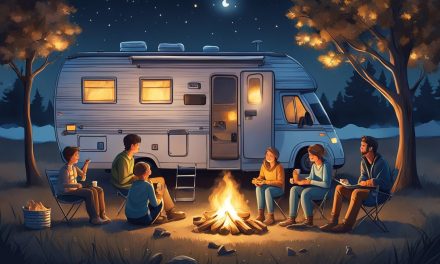Would you like to save this article?
Are you dreaming about hitting the open road in your very own RV? Before you sign on that dotted line, you need to hear some hard truths about RV ownership that most dealers won’t tell you. The reality is that buying an RV can be one of the biggest mistakes you’ll ever make – unless you learn from the painful experiences of others first.
With over 11.2 million RV owners in America and the industry generating $140 billion annually, it’s clear that millions of people are living the RV dream. But here’s what the shiny brochures don’t show you: every single RV, regardless of brand or price, will have problems. The difference between RV owners who love their experience and those who regret their purchase comes down to one thing – proper preparation and realistic expectations.
In this eye-opening guide, we’ll break down the seven most important truths about RV ownership that could save you thousands of dollars and countless headaches. Whether you’re considering a weekend warrior setup or planning to become a full-time RVer, these insights will help you make an informed decision that you won’t regret.
1. Every RV Will Have Problems – No Exceptions
Here’s the truth that no RV manufacturer wants you to know: your RV will break down. It doesn’t matter if you buy a $50,000 travel trailer or a $500,000 luxury motorhome – problems are inevitable. According to industry data, RV owners spend an average of $1,000 to $3,000 annually on maintenance and repairs.
The statistics are sobering. A recent study found that 85% of RVs experience roofing issues within the first five years, while 70% have water system problems. These aren’t manufacturing defects – they’re the natural result of taking a house on wheels over bumpy roads at highway speeds.
Think about it this way: your home doesn’t travel down the interstate at 65 mph while experiencing constant vibration and movement. RVs face unique stresses that traditional homes never encounter, which is why components fail more frequently than you might expect.
The Smart RVer’s Perspective: Instead of viewing problems as disasters, successful RV owners see them as part of the adventure. They budget for repairs, learn basic maintenance skills, and build relationships with trusted repair shops along their favorite routes.
2. Brand Loyalty Is Overrated and Potentially Dangerous
You’ll meet RV owners who swear by their brand and others who wouldn’t touch the same manufacturer with a ten-foot pole. Here’s the reality: both groups are probably right based on their personal experiences.
The RV industry is filled with passionate brand advocates who either love their units or have had terrible experiences. But here’s what matters more than brand loyalty: understanding that every manufacturer, from Alliance RV to Grand Design, produces both excellent units and lemons.
Current industry data shows that even the most respected manufacturers have quality control issues. The key isn’t finding the “perfect” brand – it’s finding the right RV for your specific needs and budget, then having it properly inspected regardless of the nameplate.
The Smart RVer’s Perspective: Rather than getting caught up in brand wars, smart buyers focus on the specific unit they’re considering. They research common problems for that model, check owner forums, and make decisions based on facts rather than marketing hype.
3. Your Wallet Will Take a Beating (And That’s Normal)
Let’s talk numbers. The average RV owner spends $5,800 per year on their unit, including maintenance, repairs, insurance, and storage. That breaks down to about $483 per month – and that’s after you’ve already bought the RV!
Here’s where it gets interesting: the demographic data shows that 46% of RV owners are between 35-54 years old, with the median age dropping from 53 to 49 in recent years. These aren’t retirees on fixed incomes – they’re working professionals who can afford the ongoing costs of RV ownership.
The breakdown typically looks like this:
- Regular maintenance: $1,000 annually
- Unexpected repairs: $2,500 annually
- Emergency fixes: $1,500 annually
- Upgrades and improvements: $800 annually
The Smart RVer’s Perspective: Budget for the unexpected. Set aside at least $300-500 per month for RV-related expenses beyond your loan payment. This isn’t pessimistic – it’s realistic planning that will keep you on the road instead of stranded at a repair shop.
4. Professional Inspection Isn’t Optional – It’s Survival
Here’s a fact that might shock you: 99% of RV dealerships don’t perform thorough pre-delivery inspections. They’re focused on moving inventory, not ensuring your unit is road-ready. That’s why professional inspection is absolutely critical.
Industry statistics show that professional inspectors find significant problems in 78% of the RVs they examine. These aren’t minor cosmetic issues – we’re talking about safety-critical problems like faulty brakes, electrical issues, and structural defects that could leave you stranded or worse.
The National RV Inspectors Association reports that a typical inspection costs $500-800 but can save you thousands in repairs. Common issues found include:
- Roof and seal problems (found in 85% of inspections)
- Water system issues (70% of inspections)
- Electrical problems (65% of inspections)
- Tire and suspension issues (60% of inspections)
The Smart RVer’s Perspective: If you can’t afford an inspection, you can’t afford the RV. Period. This isn’t an area to cut corners – it’s an investment in your safety and financial security.
5. Maintenance Is Your New Part-Time Job
Owning an RV means becoming a maintenance expert whether you want to or not. The good news? Many RV owners discover they actually enjoy working on their rigs. The bad news? Neglecting maintenance will cost you big time.
The RV industry has seen a 62% increase in ownership over the past 20 years, with 12 million households now owning RVs. Many of these owners have learned that regular maintenance isn’t just about saving money – it’s about preventing catastrophic failures that can ruin your vacation or leave you stranded.
Basic maintenance tasks you’ll need to master include:
- Roof inspections and seal maintenance
- Water system winterization and de-winterization
- Tire pressure monitoring and rotation
- Brake system checks
- Electrical system troubleshooting
- Appliance maintenance
The Smart RVer’s Perspective: Embrace the learning curve. Every skill you develop saves you money and gives you confidence on the road. Plus, there’s something deeply satisfying about fixing your own problems in the middle of nowhere.
6. The RV Community Will Become Your Extended Family
Here’s the silver lining in all this talk about problems and expenses: the RV community is unlike anything you’ve experienced. When your water pump fails at 2 AM in the middle of nowhere, fellow RVers will literally give you the parts off their own rigs to get you back on the road.
With over 40 million Americans regularly going RVing, you’re joining a massive community of people who understand the unique challenges and joys of life on the road. RV forums, social media groups, and campground communities provide support, advice, and friendships that often last a lifetime.
The mutual support system is remarkable. RVers share tools, knowledge, and resources freely. They’ll help you diagnose problems, recommend reliable repair shops, and even lend a hand with complex repairs.
The Smart RVer’s Perspective: Don’t try to go it alone. Join RV clubs, participate in online forums, and attend RV shows. The knowledge and connections you gain will be invaluable when problems arise.
7. Research and Education Are Your Best Insurance Policies
The difference between RV owners who love their experience and those who regret their purchase comes down to one thing: preparation. The more you know before you buy, the better your ownership experience will be.
According to RV Industry Association data, the RV market has been growing at a compound annual growth rate of 4.2%, reaching $69.23 billion by 2032. This growth brings both opportunities and challenges as manufacturers struggle to keep up with demand.
Your research should include:
- Understanding the specific model’s common problems
- Learning about the manufacturer’s customer service reputation
- Researching local repair facilities and parts availability
- Understanding warranty coverage and limitations
- Budgeting for realistic ownership costs
The Smart RVer’s Perspective: Treat RV buying like you’re getting a PhD in that specific model. The time you spend researching will pay dividends throughout your ownership experience.
Conclusion: Knowledge Is Your Best Co-Pilot
RV ownership isn’t for everyone, and that’s perfectly okay. The lifestyle requires a specific mindset that embraces both adventure and responsibility. You need to be prepared for problems, willing to learn new skills, and ready to invest both time and money into your rolling home.
But here’s the thing: for those who are prepared, RV ownership can be incredibly rewarding. The freedom to explore, the communities you’ll join, and the memories you’ll create are worth the challenges – if you go into it with realistic expectations.
Remember, every RV will have problems. Every brand has both satisfied customers and horror stories. The key is proper preparation, realistic budgeting, and a willingness to learn. If you can embrace these truths, you’ll join the millions of RV owners who wouldn’t trade their lifestyle for anything.
The road is calling – just make sure you’re ready to answer with knowledge, preparation, and a healthy respect for the realities of RV ownership.
SOURCES
- RV Industry Association – 2024 RV Industry Profile
- ConsumerAffairs – RV Ownership Statistics 2025
- Camper Champ – USA RV Camping Statistics 2024
- RV Love – The Real Cost of RV Ownership
- National RV Inspectors Association – RV Inspection Importance
- Big Truck Big RV YouTube Channel
- Fortune Business Insights – Recreational Vehicle Market Analysis
- Outdoorsy – Hidden Costs of RV Ownership

